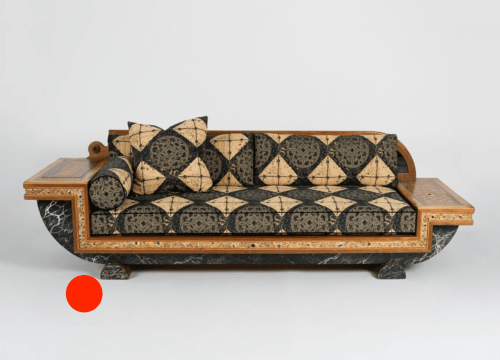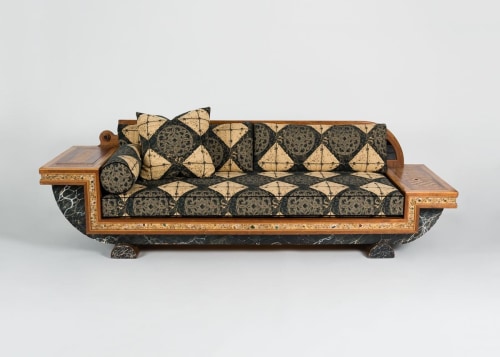

Pucci de Rossi was born in Verona, Italy in 1947.
He studied under the American sculptor HB Walker and began his career in the city of his birth in 1971. His studio doubled as his home, and his first works were jewelry and furniture made for this space. These first pieces were made in the Art Nouveau style, but as his work evolved, growing ever more sculptural, he strayed from his devotion to this dated form. He redirected his energy toward building first thrones and then furniture of all kinds in a playful variety of period styles, each mixed with kitsch.
His studio was an open house at all hours of the day for anyone interested; and this state of affairs remained the status quo well after he moved to Paris in the late 1970s. The move was a seminal moment for the artist—as he left Verona the Memphis style was coalescing, and while this was not so much a rebuke of the style as a refusal to be associated with one, de Rossi’s thinking on the subject could be summed up with comment for which he is fondly remembered: "When something works, change it!"
Once in Paris, where he would remain for the rest of his life, he worked on projects with both Arnal and Atelier A; and thereafter, for private clients like Hubert Bukobza and Jean Claude Binoche. With these later projects, he leaped headfirst into the world of postmodern design, producing work alongside other influential and likeminded artists in Paris at the time.
De Rossi’s work grew increasingly surreal, and was at times brutal, at others an intentional semi pastiche of neo-baroque. He did not merely evade classification but deftly avoided the growing debate over whether design could be art. Calling himself a “fake designer,” he continued, to the end, to produce aesthetically groundbreaking work that was, nevertheless, consummately functional.
Pucci De Rossi died in 2013.